Views
How Poetry Led Mia Couto To Join Mozambique’s Liberation Struggle
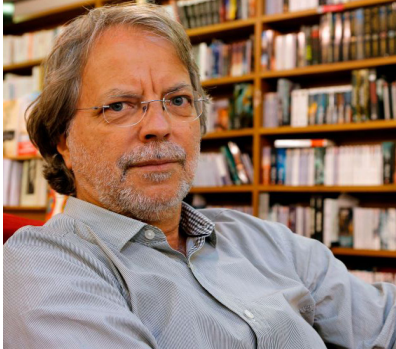
Mia Couto, one of Africa’s most celebrated authors and poets, never set out to be a freedom fighter. But his words, born out of a childhood of privilege and a desire for justice, caught the eye of Mozambique’s revolutionary leaders, drawing him into the heart of the country’s liberation struggle.
Growing up in colonial Mozambique, Couto’s Portuguese parents and European roots set him apart from the black majority. Yet, he found solace in the written word, and his poetry became a powerful tool for expression and connection with the world around him. “I invented something, a relationship with paper, and then behind that paper there was always someone I loved, someone that was listening to me, saying: ‘You exist’,” he recalls.
As a child, Couto was aware of the injustices of colonial society, and he knew he couldn’t be happy without fighting against it. When the fight against Portuguese rule began, Couto’s poetry made him an unlikely recruit for the revolutionary movement, Frelimo. Despite feeling out of place among the freedom fighters, his words earned him a place among them, and he became an integral part of the struggle.
Read also : Mozambique Election Crisis: EU Observers Report Manipulations, Rising Violence
Couto remembers the night he was summoned to appear before Frelimo leaders, where he was the only white boy in a crowd of 30. He made up a story about himself, feeling he had no chance of being selected otherwise. But Frelimo leaders had already discovered his poetry and decided he could help their cause. “The guy that was leading the meetings asked me: ‘Are you the young guy that is writing poetry in the newspaper?’ And I said: ‘Yes, I’m the author’. And he said: ‘Okay, you can come, you can be part of us because we need poetry,” Couto recalls.
After Mozambique gained independence in 1975, Couto continued working as a journalist until the death of Mozambique’s first president, Samora Machel, in 1986. He then quit, disillusioned with Frelimo’s discourse. Today, Couto is proud of his role in the liberation struggle and continues to write, inspired by the people and land he loves.
Analysis
The Agony of a Columnist, by Alabidun Shuaib AbdulRahman
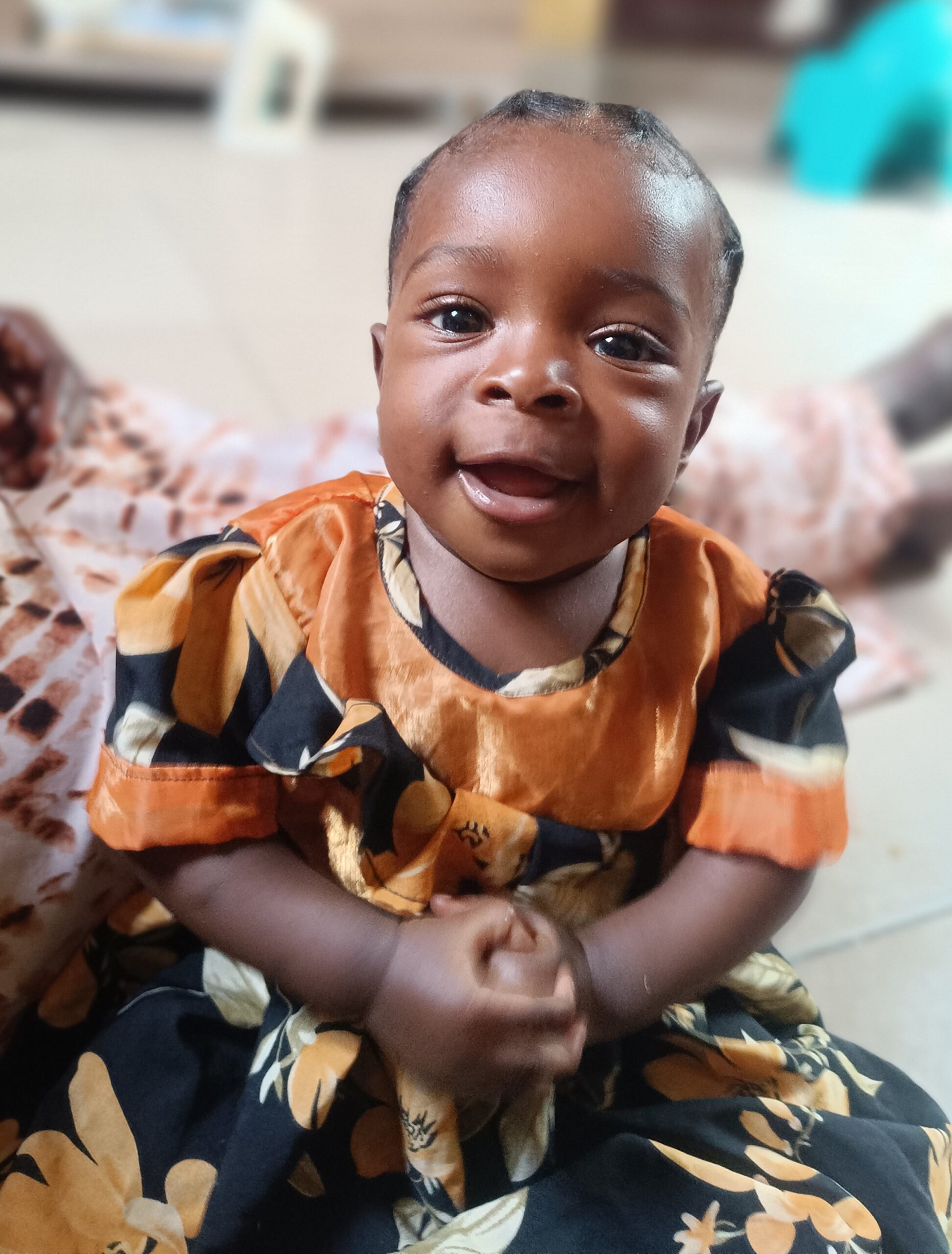
The Agony of a Columnist, by Alabidun Shuaib AbdulRahman
There are pains that refuse to be edited out of memory. No matter how carefully one chooses words, some experiences bleed through the page, heavy and unyielding. I write this not merely as a columnist accustomed to weighing public issues, but as a father whose pen now trembles under the weight of a personal loss that should never have happened.
The death of my eight-month-old daughter, Alabidun Rahmah AbdulRahman, is not just a private tragedy; it is a mirror held up to a system that looks impressive on the surface but collapses at the moment it is most needed.
On Friday, 23rd January 2026, my daughter was taken to General Hospital Suleja because she was unable to suck breast properly. It did not appear, at first, to be a death sentence. Like many parents, I trusted the judgment of trained professionals. The hospital itself inspired confidence. It is well renovated, neatly structured, and visually reassuring. From the outside, it looks like what a modern government hospital should look like. That appearance, in truth, persuaded me to use it. I believed, as any reasonable citizen would, that a facility that looks ready must surely be ready.
That belief became my greatest regret.
Rahmah was admitted the same day on the claim that her condition required emergency attention. She was taken into the Emergency Pediatric Unit, a designation that suggests urgency, speed, and competence. But what followed was neither urgent nor competent. For over thirteen hours, my daughter lay there in visible discomfort, struggling, crying faintly, weakening by the minute.
During this entire period, no doctor came to see her. The only available doctor was contacted several times by a Nurse. Calls were made. Messages were sent. Appeals were raised. Yet she never showed up, never examined the child, never intervened until she passed away Saturday night.
It is difficult to explain what it feels like to watch a child suffer while help remains just out of reach. Hospitals are supposed to be sanctuaries of hope, places where time matters and minutes are counted with seriousness. But in that Emergency Pediatric Unit in Suleja General Hospital, time became an enemy. Thirteen hours passed like a slow execution.
At some point, sensing danger, I requested that my daughter be transferred to a private hospital. I was ready to bear any cost. That request was not granted. Instead, oxygen was administered, as though oxygen alone could replace diagnosis, treatment, and medical presence. Oxygen became a gesture, not a solution. Sadly, when Rahmah took her last breath, it was not because her condition was incurable. It was because care was absent.
This is where the agony deepens. This was not a dilapidated structure abandoned by government. This was a renovated hospital, one that fits neatly into budget speeches and commissioning photographs. Niger State, since 2023, has consistently announced significant allocations to the health sector. In the 2024 fiscal year, over forty billion naira was earmarked for health, with emphasis on improving facilities, upgrading hospitals, and strengthening service delivery.
In 2025 and into the proposed 2026 budget, health allocations rose even higher, approaching over seventy billion naira, according to official budget presentations. These figures are not rumours; they are public records. They are read aloud in legislative chambers and celebrated in press releases. Yet, standing beside my dying child, those billions meant nothing.
A hospital is not healed by paint, tiles, and glass alone. A renovated building without doctors is like a body without a pulse. General Hospital Suleja may look functional, but inside, it suffers from a shortage that is far more dangerous than cracked walls. The absence of medical personnel, especially during emergencies, is a silent killer. No amount of renovation compensates for a system where doctors can choose not to respond to repeated calls when the needs arise.
Also strangely to me, there is the issue of power. What kind of hospital functions with generator power for barely three hours a day, typically between 8pm and 11pm? In a medical environment, power is not a convenience; it is life itself. Equipment depends on it. Monitoring depends on it. Emergency response depends on it. When power becomes a luxury, care becomes compromised. It is disturbing that in 2026, parents still have to pray for electricity in a government hospital while budgets worth billions are announced yearly.
What hurts most is not just the loss, but the realization that this suffering was avoidable. It was not fate. It was negligence. It was indifference. It was a system that has mastered the art of looking prepared while remaining dangerously hollow.
As a columnist, I have written about governance failures, policy gaps, and institutional decay. I have used statistics and official statements to interrogate power. But nothing prepares you for the moment when those abstract failures become personal. When the child you named, carried, and loved becomes a casualty of the same system you once critiqued from a distance.
I cannot, in good conscience, advise even my enemy to use that hospital again, not because it looks bad, but because looks deceive. The pain of trusting a fine exterior only to encounter fatal emptiness inside is something I would not wish on anyone. Health facilities should not be deceptive showpieces. They should be living systems, staffed, powered, responsive, and humane.
This is not a call for sympathy. It is a demand for honesty. If governments will continue to announce impressive budgets, then citizens deserve impressive outcomes. If hospitals are renovated, they must also be manned. If emergency units exist, they must function as emergencies, not waiting rooms for death. Accountability must move beyond paperwork and reach the ward, the night shift, the unanswered phone call.
Alabidun Rahmah AbdulRahman was eight months old. She was my only daughter. She deserved more than silence, more than delay, more than oxygen without care. She deserved a doctor who would show up.
Some losses change a man forever. This one has changed my writing. The pen is no longer just a tool of commentary; it is now an instrument of mourning and witness. If this column unsettles those who read it, then perhaps it is doing what hospitals like General Hospital Suleja failed to do that day — respond with urgency.
For my daughter, and for every child whose life depends on more than painted walls and budget speeches, this agony must be written, remembered, and acted upon.
Features
CARICOM Ministers Convene in St. Kitts and Nevis for 28th COFCOR Meeting
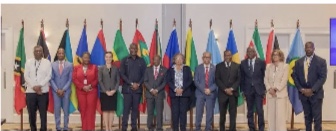
The Twenty-Eighth Meeting of the Council for Foreign and Community Relations (COFCOR) of the Caribbean Community (CARICOM) took place in Basseterre, Federation of Saint Kitts and Nevis, from May 8 to 9, 2025.
The meeting was chaired by the Right Honourable Dr. Denzil Douglas, Minister of Foreign Affairs, International Trade, Industry, Commerce and Consumer Affairs, Economic Development and Investment of Saint Kitts and Nevis.
During the meeting, Foreign Ministers received a presentation on the development of a CARICOM Enlargement Policy, emphasizing the importance of aligning expansion with the Community’s founding principles and priorities.
They also considered the Report of the Technical Working Group Considering the Dominican Republic’s Application for Associate Membership in CARICOM and an update on the status of Bermuda’s Request for Full Membership of the Caribbean Community.
Ministers emphasized the need for increased CARICOM representation in international organizations, endorsing several candidatures to the United Nations, Organization of American States, and other regional bodies.
They noted progress in strengthening relations with traditional partners and expanding outreach to non-traditional partners, welcoming opportunities for strategic partnerships with countries like Canada.
The COFCOR expressed deep concern about the worsening security crisis in Haiti, calling for greater international attention and support, including humanitarian relief and long-term aid.
Ministers reaffirmed the importance of the Community’s Good Offices role through the efforts of the Eminent Persons Group (EPG) in engaging with key Haitian stakeholders and supporting peace and stability in Haiti.
Regarding border issues, the COFCOR expressed concern about increased tensions and maritime incursions in the Belize-Guatemala dispute, urging Guatemala to refrain from exacerbating the dispute.
They also reiterated support for the ongoing judicial process in the Guyana-Venezuela controversy, urging Venezuela to comply with the International Court of Justice’s Order.
The meeting included interactions with representatives from Third States, such as Mexico and the Philippines, where Ministers renewed commitment to advancing bilateral relations and explored opportunities to strengthen ties.
The COFCOR also received requests for the Community’s support for candidatures for a non-permanent seat on the United Nations Security Council from Germany, Portugal, and the Philippines.
The Ministers concluded the meeting with appreciation to the Government and people of Saint Kitts and Nevis for their hospitality and excellent arrangements, looking forward to the Twenty-Ninth Meeting of COFCOR in May 2026.
Trending
Diaspora Watch Unveils 21st Edition: A Global Perspective on Crisis and Culture

We are excited to announce the release of the 21st edition of Diaspora Watch, your go-to platform for insightful analysis and captivating stories from around the globe, dedicated to uniting African diaspora communities.
FREE Digital View: https://www.flipsnack.com/excelglobalmedia/diaspora-watch-oct-21-27-2024-vol-21/full-view.html
Print on Demand: https://www.magcloud.com/browse/issue/2926055?__r=1069759
SUBSCRIBE TO DIASPORA WATCH NOW ON THE BELOW LINK !!!
https://diasporawatch.com/subscribe-to-diaspora-watch-newspaper/
This issue dives into the heated U.S. presidential race, where Former President Donald Trump and Democratic contender Kamala Harris are making their final appeals to voters ahead of the November 5th election. With reports of vote-buying and significant campaign donations surfacing, we explore the potential implications for American democracy.
On the international front, tensions rise as the Russia-Ukraine conflict escalates, and North Korea aligns itself with Russian interests. In the Middle East, unrest persists following the assassination of a Hezbollah leader, with urgent calls for restraint as fears grow over a possible Israeli invasion of Iran.
In a thought-provoking piece, writer Tony Okoroji examines the possible global repercussions of another Trump presidency. Human rights advocates are also sounding alarms over the UK’s recent deportation of 44 Nigerians and Ghanaians, stressing the urgent need for more humane immigration policies.
The Mpox pandemic remains a serious threat in Africa, with over a thousand fatalities reported in recent weeks. We also delve into a unique Nigerian tradition, revealing how grooms may be compelled to fulfill marital rites under tragic circumstances.
On a lighter note, Washington D.C. recently celebrated creative excellence at the Annual Mayor’s Arts Award, while the Confederation of African Football has penalized Libya for its unacceptable treatment of Nigeria’s Super Eagles during a recent match.
Don’t miss our new Diaspora Connect page, designed to inform young Africans about international opportunities. Plus, be sure to check out the dazzling Didi Nkanta on our Diva Page, adding a touch of glamour to this packed edition.
Grab your copy today for a comprehensive view of our world, and join us as we strengthen the bonds within the African diaspora!
-

 News6 days ago
News6 days agoTrump Hails ‘Turnaround for the Ages’ in Record 110-Minute Address
-
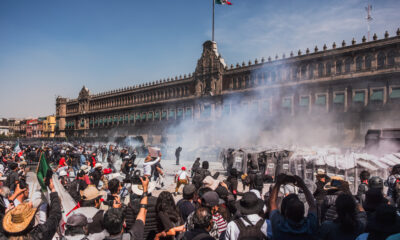
 News6 days ago
News6 days agoMexico in Turmoil After CJNG Kingpin Killed in Military Operation
-

 Analysis5 days ago
Analysis5 days agoSavannah Shield and the Security Recalibration of Kwara State
-

 Analysis6 days ago
Analysis6 days agoWho Is After Peter Obi? By Boniface Ihiasota
-
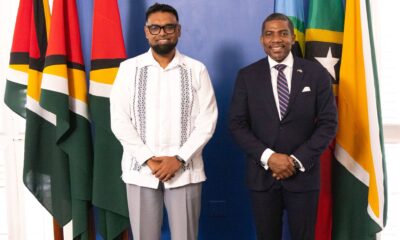
 News5 days ago
News5 days agoCARICOM Chair Engages Guyana in Fresh Push for Regional Integration
-
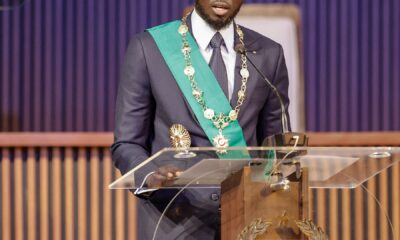
 News6 days ago
News6 days agoSenegal Moves to Raise Jail Term for Same-Sex Relations to 10 Years










